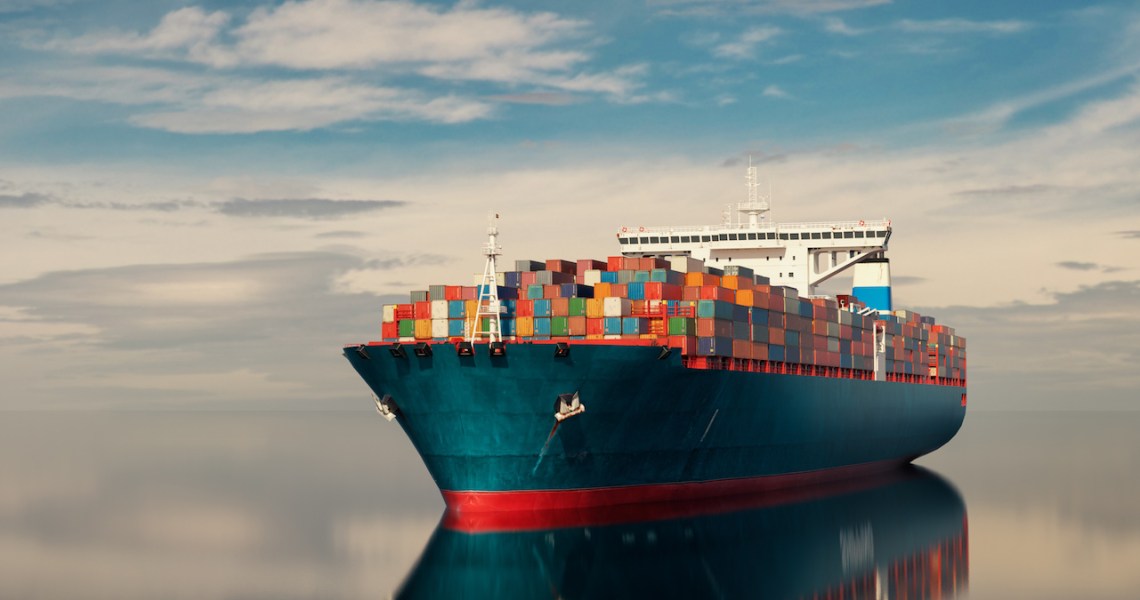Shipping has been a headache for brands since the pandemic began, and the latest numbers don’t indicate that the problems are changing soon. According to international shipping association Bimco, demand for container ships has doubled in 2021 and is continuing to grow.
And while smaller brands are making use of strategies like placing orders early and spacing out their sales to get around shipping issues, larger companies with deeper pockets are turning to a different strategy: buying shipping companies themselves.
In American Eagle’s second-quarter earnings call on Thursday morning, the company attributed much of the quarter’s record revenue — more than $1 billion, a 35% increase over last quarter — to its investment in supply chain. In late August, the company purchased AirTerra, a Seattle-based shipping and logistics startup that’s less than a year old. It’s only the third acquisition American Eagle has made in its 44-year history. The other two — Todd Snyder and Tailgate Clothing — were apparel brands.
According to Michael Rempell, chief operating officer at American Eagle, the brand has been prepping for months to speed up its supply chain. That’s included moving production earlier and diversifying the ports where it takes in product, rather than solely relying on the Port of Los Angeles. With AirTerra, which began shipping American Eagle products at the end of August, Rempell said the company has been able to cut the supply chain time down by a week and a half.
“We’re investing a lot in supply chain,” Rempell said on the earnings call. “When our product arrives without delays, it lets us chase into high demand categories more easily. We acquired AirTerra and their experienced leadership team. We’ll use their service for our products and run the [company] independently to provide services to other retailers. An efficient supply chain is truly a competitive advantage.”
Walmart is another major company that has directly invested in shipping. Rather than shipping through a third-party service like UPS, which then puts packages on ships and planes, Walmart has begun chartering its own ships as of last month, the company said in its earnings call on August 17. Companies outside of apparel like Home Depot have this done, as well.
“Our merchants continue to take steps to mitigate challenges, including adding extra lead time to orders and chartering vessels specifically for Walmart goods,” said Brett Biggs, Walmart CFO, on the earnings call. He added that the company has been able to increase its inventory by more than 20% due to being in control of its own ships.
Ad position: web_incontent_pos1
Acquiring or spending on shipping infrastructure is expensive. Chartering a container ship over the summer reportedly cost as much as $50,000 per day. To offset that, both American Eagle and Walmart are looking for ways to turn their new shipping tools into more revenue. Rempell said American Eagle will likely let other brands make use of AirTerra’s infrastructure, if excess space is available, at a cost. Walmart similarly announced a delivery service in late August called GoLocal that would allow local businesses across the U.S. to pay to use Walmart’s proprietary shipping systems, which now include entire container ships.
Analysts say it’s more important than ever that brands improve their supply chain, since the demand for products is going to start even earlier this year.
“Parents confronted by back-to-school shortages and inflation seem to be taking the lesson to heart and thinking already about a plan for holiday,” said Nikki Baird, vp of retail innovation at retail tech company Aptos. “This could mean one of the earliest kickoffs to the holiday season ever as retailers have to roll out holiday earlier to fill inventory holes today. Consumers are actually in a mindset to buy [for holiday], possibly even before Halloween hits.”
According to American Eagle chief creative officer Jennifer Foyle, supply chain management and timely deliveries will be the defining battleground for retail throughout the rest of the year. With so much of the world still backed up and delayed due to the pandemic, brands that can get a competitive advantage in shipping will be rewarded.
“We’re leaning on logistics because it’s mission-critical,” Foyle said. “We’re looking at countries shutting down again, another lockdown here possibly. The demand could change, so we will feel some pressure — but I think the team is ready for that.”




